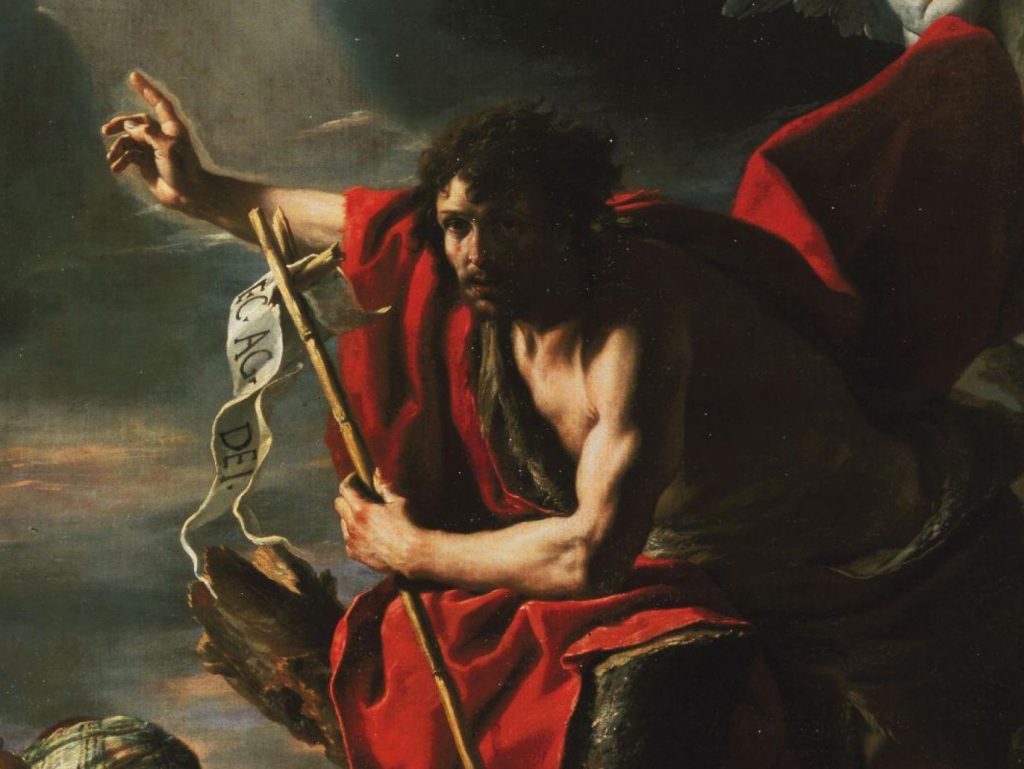Reflection on the 2nd Sunday of Advent, Cycle B

The first reading from Isaiah opens with: “Comfort ye my people…speak tenderly to Jerusalem…Her guilt is expiated.” At that time Israel was in exile in Babylon because of her sin of idolatry. She had suffered enough because of her sins and now the Lord wanted to console her. A voice would now cry out in the wilderness: “The glory of the Lord shall be revealed… Here is your God…he comes with power…like a shepherd he feeds his flock.” These promises were fulfilled when King Cyrus of Persia allowed Israel to return to their land in 538 BC and they were later able to reconstruct the walls of Jerusalem and the Temple. Israel once again felt secure in the protection of Yahweh.
At the threshold of the New Testament, this prophecy is again quoted this time with John the Baptist as the voice “crying out in the desert: ‘prepare the way of the Lord, make straight his paths.’” John the Baptist was preaching a “baptism of repentance for the forgiveness of sins.” As people were being baptized, it is explicitly said by the evangelist that “they were confessing their sins,” the verb in present participle to indicate an action simultaneously going on. Let it be noted that in the Old Testament there was already confession of sins. For this, read Lev 5. In “comforting” Israel, God had “her guilt expiated” and that is why John the Baptist was preaching a baptism of repentance and the people confessed their sins and obtained forgiveness.
When we review this “preparing the way of the Lord”, the prophet Isaiah specified: ‘make straight a highway’, ‘every valley be filled in’, ‘every mountain and hill be made low’, ‘the rugged and the rough be made plain’. The ‘valley’ is the plain between mountains and is in the dark for much of the day and receives light only when the sun is at the zenith. Is my life most of the time in the darkness of sin so that the light of grace shines only for a limited time? This happens when we delay our confession. “Mountains and hills” obviously refers to our pride and ‘to be made low’ is nothing more than humility. This humility must be combined with love by which we begin to think of the good of others around us beginning with our own family. The rugged and rough roads are made by pot holes, stones, uneven surface and bumps. What are the causes of roughness in my spiritual life? Am I tempestuous of character? Am I uncouth, rude, harsh, prickly of speech, lacking refinement or grace in my dealings with others even with my loved ones? “Make straight”, are there winding roads, loops and bends in my way to God? On our way to self-gratification we take the straight paths using all possible means at our command. But when the Lord calls, our feet grow heavy, and if we move we make zigzags, making many excuses not to proceed by the direct road. In my spiritual life, what turns and loops do I usually take just to delay my ‘yes’ to God’s call to love and service? Do I drag my feet along the way? These are just a few of the aspects of our life that we need to check in preparation for the Lord’s coming.
John the Baptist tells clearly that he who is to come is greater than he; that if he baptizes with water for repentance, it is only in preparation for the Lord who comes and who will baptize us with the Holy Spirit. Let us therefore take the means at our disposal: make a good confession now during advent that we may fully receive what the Lord prepares for us at Christmas.
